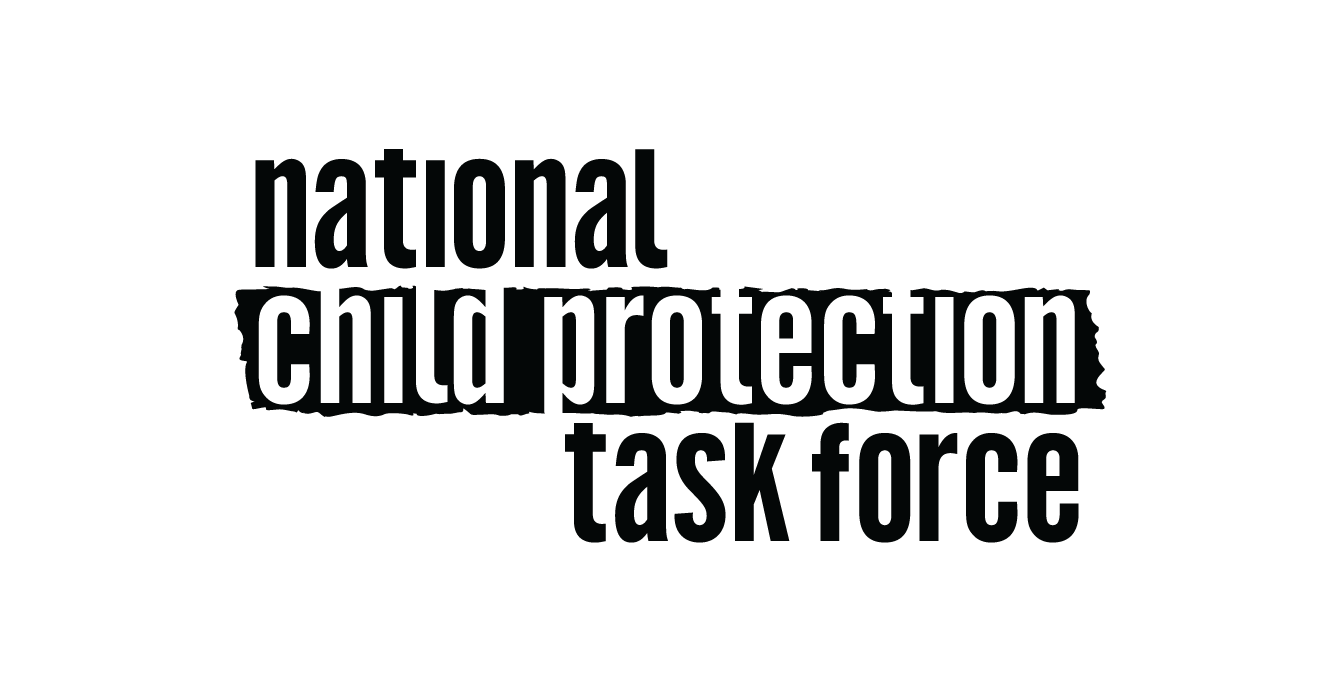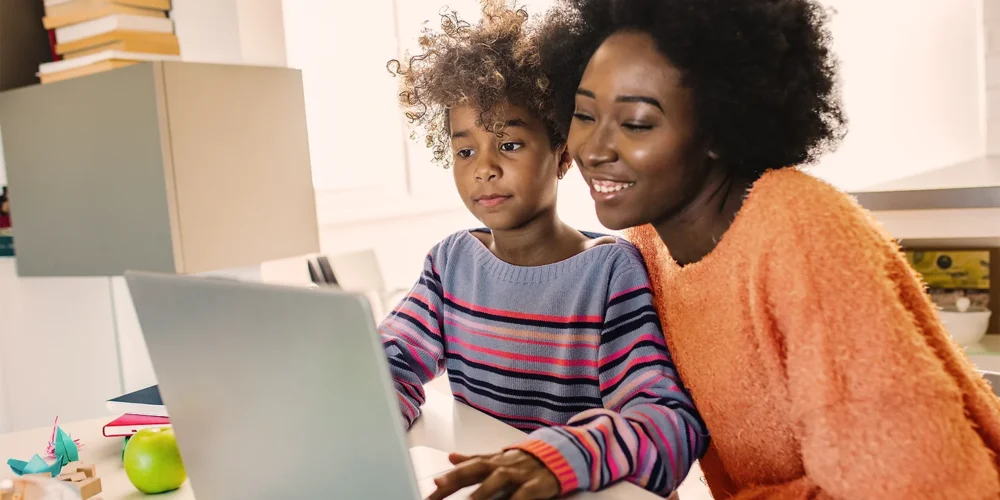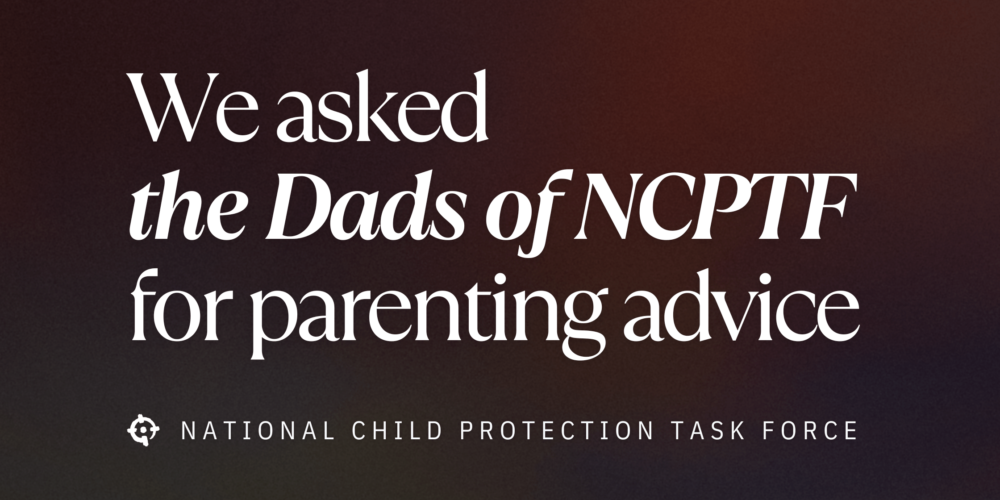Folders, crayons, markers, glue, page dividers, backpacks! The excitement of back-to-school comes with a lot of stuff! And now that most of the work has gone digital, children are issued school devices to submit homework, collaborate, and learn. But just because it is a school-issued device, that doesn’t mean it is a safe environment.
Life would be so much easier if we didn’t have to worry about online predators, but truth-be-told, if we don’t, we leave our children vulnerable. So how can we keep our kids safe online?
Here are 5 tips to help you parent your child and keep them safe in the digital age.
Understand Device Controls in Place
Handing your child a device without parent controls is like throwing your child to a crowd full of strangers and saying, “Here, show them whatever you want.” There are unlimited influences out there, many of them dangerous in nature. A simple google of “Dora” could land you with an innocent episode uploaded to YouTube or it could land your child on sexual content made by someone who deliberately degraded the character’s image.
Shocking material that’s sexual or violent in nature is out there in abundance and if there is nothing in place to prevent your child from stumbling across it (whether they are looking for it or not), then they are vulnerable to harmful exposure.
If you struggle to keep up with technology (which is all of us to some extent as tech continues to evolve and change), ask your school to explain their controls. Don’t assume they have securities in place. If your school does, great! They can explain it to you and open that conversating for other parents. If they don’t, your question illustrates the importance of implementing controls of some sort swiftly.
It is important to realize that parental controls are not fool-proof, but you have to have some line of defense when it comes to nefarious content. A child doesn’t even have to be seeking harmful content for it to find them, and exposure to violence and sexual content at an early age causes long-term damage we are just beginning to understand.
Keep Devices in Shared Areas
Keeping devices in shared areas of the home – kitchen, living room, etc. - especially for younger ages is vital to keeping them safe online. Even for adults, keeping laptops, tablets, games, and desktops in public spaces encourages accountability when it comes to online activity. For young children, this is especially vital - there have been reports of children groomed into sending videos of self-generated sexual abuse material to predators with parents audibly heard in another room.
It is dangerous to think “My child is a good kid – I don’t have to worry about that.” Even the best-behaved children with strong moral-compasses can be manipulated by these professional predators. Eliminate one of the things a predator needs to groom children online – privacy.
Once they are older and understand the risks of online activity and engaging with strangers, then you can evolve privacy rules as they mature.
Talk to Your Kids About Predators
Many of us had parents who completely skipped “the talk” and we had to learn about the birds and the bees on our own. That simply will not work in today’s digital landscape. Not only do we need to talk to our children about healthy sexuality, but we also need to talk to our children about those seeking to hurt them.
Children learn quickly about “scammers” in their games. It is time they learn about online predators too. The conversation could start off with talking about “tricky people.” But a child whose puppy love is already tied up to a groomer they met online may not be able to realize the predator they are talking to is a “tricky person.”
Children need to know what is and isn’t okay for others to expect from them sexually. Yeah, these are uncomfortable conversations, but how else can your child know that the person pretending to be a peer and sending them photos like they want – nudes or sexual in nature – is a criminal? Children don't know it is inherently wrong at first and the shame might keep them from coming forward.
If your children are not aware of predators, they won’t know how to protect themselves. The showering of affection or attention from online predators is enough to blind any child from the sexual abuse that is coming.
Keep Your Own Social Media In Check
A child’s social media and online footprint can be as pristine as can be, but if yours isn’t, they're at risk for abuse.
Everyone makes mistakes, and sometimes our children do by slipping up and saying their name in a video game or giving some other identification clue without realizing. Their gamer friends take that information and do a little OSINT search of their own, uncovering your social media.
There they find the first-day-of-school posts, teacher’s name and grade included. A few moments later and they have your child’s school. Enough digging, and they can find your home, even identifying your child's bedroom from previous Zillow listings – long story short, your social media could be the source of all the information a predator needs to effectively groom your child.
Of course, we love to be proud of our children and share their best moments with friends and family. But we have to realize that not even the best privacy settings keep your child safe from abusers that use your social media posts to their advantage. Sharenting is a real thing, and we all need to be aware.
Be Involved Online
We teach our children how to tie their shoes, look both ways before crossing the street, and flip the perfect pancake. We also need to parent online. Screen time doesn’t mean alone time. Follow your child’s favorite streamers on your favorite social medias. Subscribe to YouTube channels and watch together. Commit to learning a silly TikTok dance. Whatever your child is interested in, make the effort to be interested, too.
This serves two purposes. First, it helps your child feel valued. They don’t separate their online life from their real life - you are involved in both. If they run into trouble online, they are more willing to come forward for help because they know you are in the know of what is going on.
Second, it opens up more parenting opportunities – the needed parenting opportunities. It opens the door for intentional conversations about cyber bullying, harmful online content, etc. Integrity isn’t just how you act in the physical world. It has to be taught for the digital one too.








